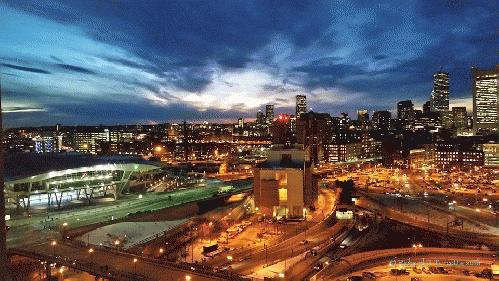It has been a main theme of mine--given the impact peak oil will eventually have on all of us--that small changes here and there, every now and then, by a few of us when we can spare the time, are not the optimal strategies for us to pursue. Conventional crude oil has been in many ways the most astonishing discovery in our history--all the more significant given how its many benefits have extended in so many directions.
While production totals are substantial enough for now, and most likely for quite some time to come, that's not the answer to any questions about the adequacy of our long-term energy supply. It is certainly not a good reason to postpone discussions until some undetermined date in the middle-distance future.
Even a moment's consideration about the immense value of fossil fuels that so many of us depend upon so much for so many products and services suggests to even a casual observer that less for any sustained period is not a good place to be. While that's not a concern today or tomorrow or any time soon, fossil fuels--specifically oil--remain a finite resource. Until we change the definition of "finite," we're going to have to recognize the impact of less soon enough.
The current low prices are, as I and many have noted, a pleasant change for consumers. I'm no different in that regard. Paying less for services or products, especially those relied upon so frequently and in so many ways, is not a circumstance we're inclined to object to. But few things in life are free, and if prices for goods have dropped, there is another side to the story.
That resource is largely responsible for ushering all of us into modern society with its astounding technological advances made readily available to billions of us--also courtesy of that same resource ... the finite one whose production totals peaked a decade ago. Fracking not only helped maintain the production levels needed, it also increased totals much more than most of us ever anticipated.
But a low-cost environment is not what drives tight-oil production. High prices do that trick, and we don't have those now. Various reports and expert opinions in recent months suggest we'll be in a low-price environment for many months to come. If true, the suspension or cancellation of almost $400 billion worth of exploration projects reported earlier this year won't be the last round. Since there is no magic associated with fracking, production cutbacks will in time lead to a diminished supply [recent over-supply noted, although that had less to do with the marvels of fracking than a need to pump whatever companies could to generate cash flow to pay down the high debt most carried].
Adjustments will be needed, and perhaps the initial round of reduced availability will affect others or other segments of society. But it is not just what may be a relatively short [?] curtailment of production that is of concern. If it were, we'd go right back to having all that we and everyone else needs for decades to come, and What, Me Worry? would be the mantra for just about every consumer of fossil fuels.
If only.
There's an obvious downside to the high prices needed to sustain tight-oil production. Consumers aren't delighted, and higher costs impact most of them, and in many different ways. Most consumers do not have unlimited budgets, and so cutbacks in their own lifestyles will be inevitable. It's difficult to predict how those dominoes will tumble.
The "arrival" of peak oil--that point at which we've reached the maximum rate of production [which we have insofar as conventional crude oil is concerned]--is not going to be an obvious, We-Told-You-So moment. The laws of physics, economic and geological constraints, along with the normal challenges the industry faces in exploration and production, will create all kinds of subset challenges. Few can be predicted with any great accuracy.
Ignoring them by a too-large segment of the industry and its related arms has been the norm for too long. The fact that peak oil's impact may creep up on us slowly is just as much a motivation to embark on the long and complex path of planning and transitioning as any other occurrence. Now might be a good time to try something else.
We all have skin in this game, and since the consequences that spill out across the landscape once we really start having to deal with the impact of peak oil in our day-to-day lives, we need to join in the debate. And as I have been urging throughout, that means we all need to become better educated about the facts and the risks. Relying on the feel-good pablum dispensed by those with interests at odds with our own is another tactic we should toss into the trash heap.
There are two sides to this story. Some is good; some not so much. But without an adequate foundation for understanding the issues and ramifications, too many of us will be content to rely on whatever feels good in the moment. That's not the best choice we can make.
The knowledge and expertise of those who have long denied and/or misled need to be put to better and more beneficial use than serving the interests of the few.
Adapted from a blog post of mine






